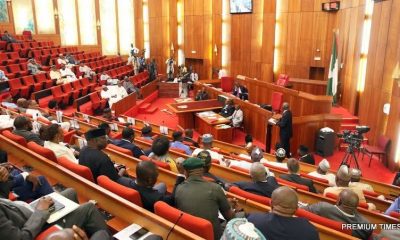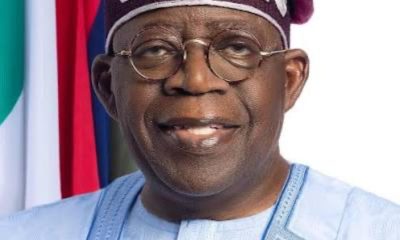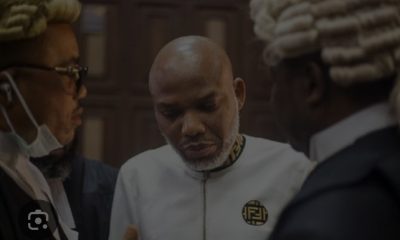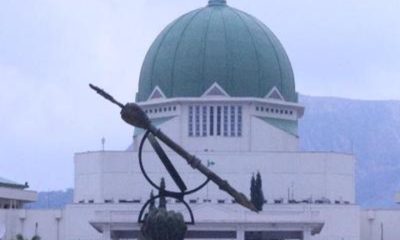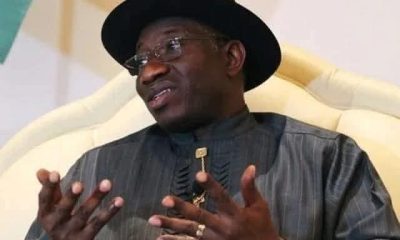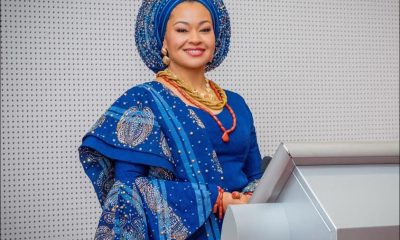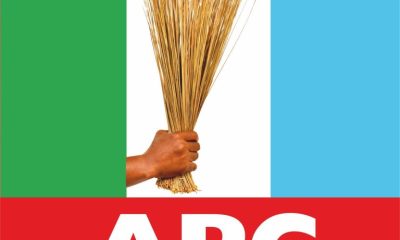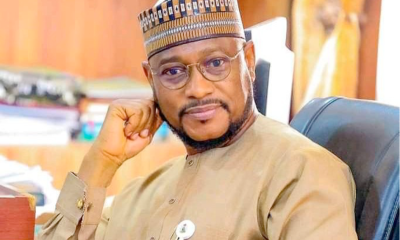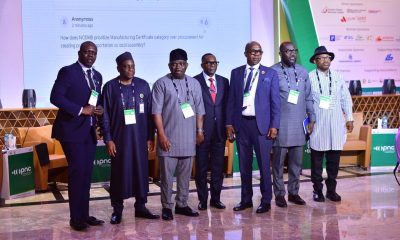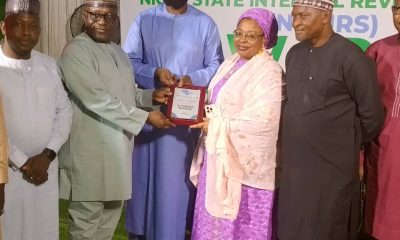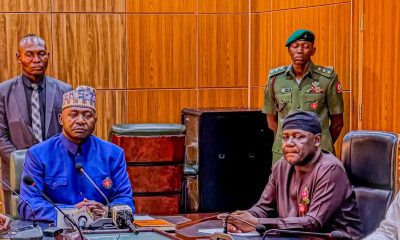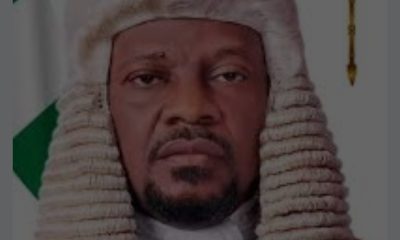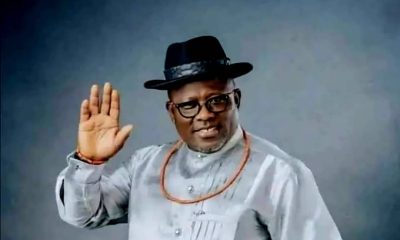Politics
APC govt should be blamed for adopting harsh economic policies that inflict hardship on Nigerians-Dr Ahmed
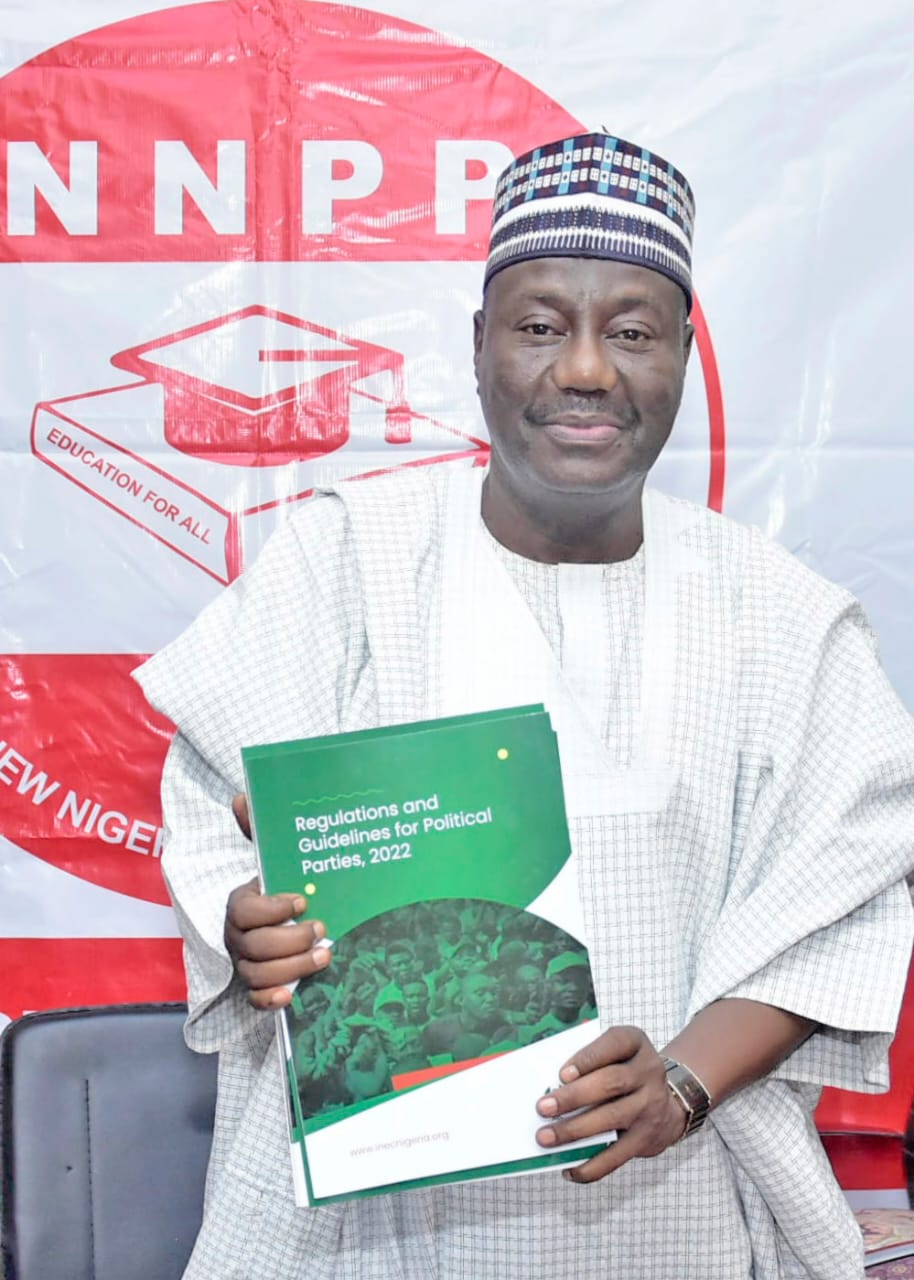
National Chairman, of the New Nigeria Peoples Party (NNPP), Dr Ajuji Ahmed has blamed the current economic situation in the country to the inability of the ruling All Progressives Congress (APC) to weigh the precarious consequences of removing fuel subsidy and floating the Naira on Nigerians before adopting such economic policies.
Speaking in an exclusive interview with IGNATIUS OKOROCHA, Dr Ajuji Ahmed while bemaoning the frightening level hardship across the country since the assumption of office by President Bola Ahmed Tinubu, noted that the situation could have been avoided if the President had consulted widely before embarking on such policies.
He speaks on early politicking by political parties, formation of coalitions, defection syndrome, state of nation and other issues of national importance.
Excerpt:
Mr Chairman the nation has witnessed a number of politicians cross-carpeting from the opposition parties to the ruling All Progressives Congress (APC) while others are forming coalition on the platform of the African Democratic Party (ADC).
What is the stand of your party on this development?
Well, this is a pertinent question that has been asked again and again, but at the end of the day,we are very proud to run a party that is not crisis ridden, that is stable and that is Progressives. Other parties as you rightly pointed out,are all in crisis, including APC, I understand they are going to have their NEC meeting shortly but everybody has been predicting one thing or the other is going to happen in that NEC meeting and that is how unstable the APC its self is.
People’s Democratic Party (PDP) is no longer the party that we all know it to be. It is indeed in deep crisis of existence. Social Democratic Party (SDP), you can see how things are happening in there with suspensions and counter suspensions of their officials and Labour Party (LP) is a well known crisis that they have been going through. We here at NNPP, you know, we believe that for a committee of a country’s
politics to be stable, we need stable political parties and we hope that we will achieve the stability in the course of time .we will be stable ourselves, so that we advance in governance and in the development of the country, economically and otherwise.
We also wish to tell you something that you already knew, we have our own headach here which we have practically overcome with one group of people saying that they represented NNPP, we knew that we are the constitutionally recognized as the only NNPP that will field a candidate and so on and so forth.We therefore regard them as mere agitators but within the NNPP itself there is absolutely no crisis at all. We don’t have any division within our NWC. Our relationship with state government that we have is very stable and very cordial. Our relationship with our elected legislators at the state and federal levels are stable and cordial in virtually every aspect of our policies. So, we are very proud of the achievements that we have made in making the party very stable.
As far as politicking is concerned yes, you pointed out that we started early because what everybody is saying is that at one point that the ruling party should have concentrated on governance for at least three years before politicking begins, but here we are. I think they have started their politicking even within the first year with their body language from day one.
So, there is nothing we can say about that except to try to work in calm waters no matter how unstable the sailing is. We will contribute whatever we can to ensure the political stability of the country.
We have not started politicking unlike other parties and other coalition and so on but we know the bearing we are taking and at the end of the day, we believe that at the end of the day, we will know the correct thing to do.
We will like to know the position of your founder, Senator Rabiu Kwankwaso in the party presently?
Dr Rabiu Musa Kwankwaso is the National leader of NNPP. He has been and he has always continued to be unless he tells us that he is resigning his leadership. He is our leader and we are very proud of him, the support that he garners for the party and the level of cooperation in terms of our duties and responsibilities. Even though we are not in conjunction with him but he gives us all the necessary support for every policy decision that we take.
What is the strength of your party in the National Assembly and state Assemblies and governance?
In term of national elections, the most primary responsibility of a party is its spread and spread will give it followership. We are proud to say that we have state branches in all the 36 states of the Federation and FCT. Within every state, we have offices in virtually every local government of the country. We are trying to rebuild the party towards 2027 and that is why we are not incline to make alot of noise. We want to make our work peacefully and progressively and the time our strength is needed then we will definitely show our strength.
Some of us are worried that you only have Kano as your major catchment area. Is there any effort being made by your party to spread your tentacles to other states of the Federation?
We only happened to have won Kano and we knew what we recorded in terms of the closeness in winning Jigawa,Taraba and Kaduna and a few other states that I can’t mention to you right now. But we are proud of Kano and the popular saying across the country is that when you get Kano it’s like equivalent of having about three states and it is true, because the number of local governments in Taraba and Adamawa and Gombe are less than the number of local governments in Kano. So, we are proud to be in Kano and I assure you that in the next election, we will reflect our national character and not just a provision one in Kano. We hope to win as many states as possible like anyother political party and we believe that we will do so based on the strength in terms of spread. So, we are very optimistic that we will make the difference in the next election.
One of your members in National Assembly recently defected to APC. Giving this development, how many of your members are right now in the National and state Assemblies?
We won two Senatorial seats from Kano State and it is one of them that decided to decamped to APC. Its a fair, free and open political ground and therefore, he has his reasons and preferences. We wish him the best of luck in APC. If he will ever get good luck in APC. We maintain the others but I think we lost about two also and retain the others in the House of Representatives. Still we maintain our close-nit members that we have in the National Assembly. For instance I had late night meeting which allows them. A meeting that started as if it will last for 30 minutes lasted through out the night. I believe that in the course of our discussion, the position of NNPP will be known in the on going constitutional amendment and so on and so forth. The position of NNPP is going to be unique and the nation will know that even the public hearing that is going on. We have consolidated our stand in terms of all the ,key policy issues that the constitution wants to Amend and we will make our position known and I believe that the rest of the country will be very proud of us in terms of the position that we are taking.
Do you have members in other state Assemblies?
Yes we have members in Bauchi and Taraba states and I tell you we won Bauchi and almost won Taraba but then the political system didn’t arefavour smaller parties. Just because the bigger parties are always in the position of trying either snatch the will of the people against smaller parties or swallow those members who have already been elected.
Prominent politicians are currently seeking for a common platform and people of like political idealogy build a strong force to face the ruling All Progressives Congress ahead of 2027 by way of coalition. Are there members of your party that are thinking of joining the African Democratic Party (ADC)?
The coalition is ongoing and we are very much aware. They have reached out to us severely but the coalition is not just one option that we have. We definitely have the option of joining the coalition but if we are to join the coalition, we are going to join at the correct time .Am not saying that others have rushed in, well that is their choice if they have rushed in but we will take our time and access our strength and what we can bring to the coalition if we make up our minds to join. The other option that we have is like I told you since we have our branches in the 36 states of the country, we will access our strength and see if we can do it alone. If we can not go it alone then we will decide to have coalition with the coalition or coalition with anyother party to contest the 2027 election.
What is your assessment of the state of the nation?
You will hardly find a single Nigerian out over 200million Nigerians who is okay with the way the economy is being run. I think the government got it wrong from day one and I think they are doing their best to wriggle out of a very precarious situation but the way and manner those policies were taken is making it very difficult even for themselves to either retrace themselves or to move on with positive results with the measures they have taken . The reason is that if they had given some time tor consultation or reaching out for mobilisation it would have produce a different result.But they went in unilaterally from day one on the inauguration day to announce very radical policies that will affect not just the economy but also the wellbeing of practically every citizen. That is what becoming very difficult to manage even by themselves.
There are two main policies that are creating this problem and they are the pillars that are creating the problems. These are floating the Exchange rate. No country has done that.Infact United States couldn’t have done that in the manner that we have done it. If you have not safeguard your currency jealously, patriotically in other to be strong compared to other currencies a cross the world.
The other major pitfall is the sudden removal of fuel subsidy.That also to my mind has not been well thought through. If you remove subsidy I think one of the best ways to do it was to do it in the way that the government of Sani Abacha did. You define what the subsidy is and the redefine proceeds that you are getting from the subsidy and those proceeds should now be housed in a special fund that will no cushion the effect of the removal of the subsidy. That has not been done as an example. There are many other examples across the world economics that we should have borrowed but we haven’t done that and therefore it is like throwing the economy to the marines and sailors in the high sea so that it can go to wherever direction it can go. That is what we are seeing right now.
Politics
Rivers Assembly Speaker, 16 others dump PDP for APC
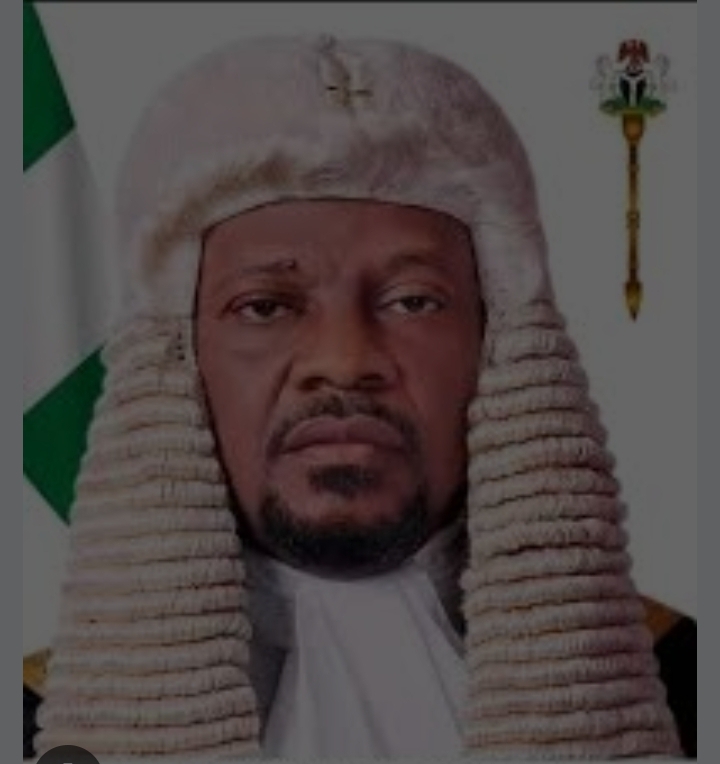
By Our Correspondent
Seventeen members of the 10th Rivers State House of Assembly, on Friday, defected from the Peoples Democratic Party (PDP) to the All Progressive Congress (APC).
The lawmakers announced their defection during plenary on Friday, December 5, 2025 at the Auditorium of the Assembly quarters currently used as the hallowed chambers.
The defected lawmakers, led by Speaker of the House, Martin Amaehwule, cited the division in the PDP at the national level as the reason for their defection, noting that the situation has made the future of the party “hazy and nebulous”.
Among the lawmakers who defected to the All Progressive Congress were; the Speaker, Martin Amaewhule, Deputy Speaker, Dumle Maol, Majority Leader, Major Jack, Deputy Majority Leader, Linda Somiari- Stewart, Chief Whip, Hon. Frankline Nwabuchi, and the Deputy Whip, Hon. Ofiks Kabang.
Others are; Hon. Peter Abbey, Smart Adoki, Igwe Aforji, Arnold Davids, Enemi George, Tekenari Granville, Christian Nwankwo, Gerald Oforji, Azeru Opara, Lolo Opuende, and Hon. Solomon Wami.
Recall that the Speaker, Martin Amaehwule had in December 2023, in the heat of the over two years political crisis in the state, led all 27 members of the Assembly loyal to the FCT Minister to the APC but later denied their defection, and returned to the PDP.
Meanwhile, the PDP which is now the minority party in the House with 9 members, has constituted their officers with Hon. Sylvanus Nwankwo emerging the Minority Leader, Hon. Barile Nwakoh was elected Deputy Minority Leader, Hon. John Dominic Iderima, Minority Whip, and Hon. Justina Emeji, Deputy Minority Whip.
The Assembly has also renewed its earlier call on the State Governor, Sir Siminalayi Fubara to forward his list of Commissioner-nominees to the House for screening and confirmation in line with the 1999 Constitution; regretting that “the State is yet to have the complement of a full cabinet.”
The Assembly also reaffirmed its earlier resolution made on the 14th of December, 2023, and adopted the auditorium at the State House of Assembly quarters as its legitimate and lawful Chamber for the conduct of legislative businesses for the life of the Tenth Assembly of the State.
Speaker of the Assembly, Martin Amaehwule in his speech lauded President Bola Tinubu for his purposeful and exceptional leadership and pledged their support to the APC and the President.
Politics
Sulu – Gambari , Ita Enang , Dambazzau , Ibas Ibok -Ete, 61 others make Tinubu’s Ambassadorial list
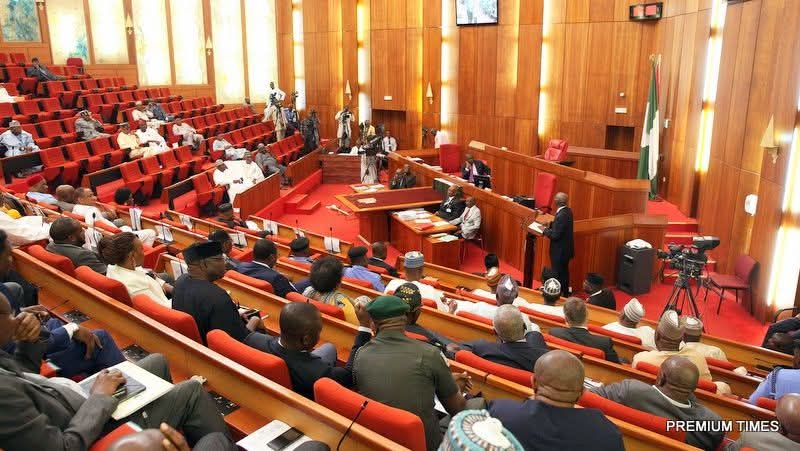
By George Mgbeleke
The Senate Thursday received requests for confirmation of nominations of 65 Ambassadorial nominees from President Bola Ahmed Tinubu.
The nominees as read from two different lists by the President of the Senate , Godswill Akpabio during plenary, fell into two categories of 34 Career Ambassadors and High Commissioners and 31 Non – Career Ambassadors and High Commissioners designate .
Notable names among the 34 Carrer Ambassadors and High Commissioners are Ambassador Sulu – Gambari Olatunji Ahmed from Kwara State , Ambassador Ahmed Mohammed Monguno from Borno State , Ambassador
Maimuna Ibrahim from Adamawa State etc .
Notable in the list of Non Career Ambassadors and High Commissioners are Senator Solomon Ita Enang from Akwa Ibom State , Vice Admiral Ibas Ibok – Ete from Cross River State , Ex Chief of Army Staff, Abdulrahaman Dambazzau from Kano etc .
President Tinubu in the requests hinged on section 171 sub section 1, 2 and 4 of the 1999 Constitution , sought for expeditious consideration of the nominees .
Accordingly, the President of the Senate, forwarded the requests to the committee on Foreign affairs for screening and report back within one week .
Recall that President Tinubu had earlier forwarded to the Senate , three ambassadorial nominees last week for appointment confirmation .
The three earlier nominees , namely
Kayode Are ( Ogun State), Aminu Dalhatu ( Jigawa) and Ayodele Oke ( Oyo State ), were screened on Wednesday by Senator Abubakar Sani Bello ( Niger North ) led committee .
Full list of the Ambassadorial nominees per state reads : ” Ambassador Ezenwa Chukwuemeka ( Abia ) Maimuna Ibrahim ( Adamawa ), Monica Ogochukwu ( Anambra) ,
Ambassador Mohammed Mahmoud Lele ( Bauchi) ,
Endoni Sindo ( Bayelsa) and Ambassador Ahmed Mohammed Minguno ( Borno ) .
Others are Jane Adams Okon Michael ( Cross River ), Clark Omeruo Alexandra ( Delta ), Chimma Geofrey Davies ( Ebonyi) ,
Oduma Yvonne Ehinose ( Edo State ), Wasa Segun Ige ( Edo State )
Ambassador Adeyemi Adebayo Emmanuel ( Ekiti ), Ambassador Onaga Ogechukwu Kingsley ( Enugu ) and
Magaji Umar ( Jigawa) .
Other nominees in the category of Career Ambassadors are
Mohammed Saidu Dahiru ( Kaduna ) ,
AbdulSalam Abus Zayat ( kano) ,
Shehu Barde ( Katsina ) , Aminu Nasiu ( Katsina ),
Abubakar Musa Musa ( Kebbi) ,Mohammed Idris ( Kebbi) ,
Bako Adamu Umar ( Kogi ) ,
Sulu Gambari Olatunji Ahmed ( Kwara ),
Ramata Mohammed ( Lagos ), Shaga John Shama ( Nasarawa )
Salau Hamza Mohammed ( Niger ) and Ibrahim Danlami ( Niger ) .
Others are
Adeola Ibrahim Mopelola ( Ogun) ,
Ruben Abimbola Samuel ( Ondo),
Akande Wahab Adekola ( Osun) ,
Adedokun Esther ( Oyo) ,
Gedagi Joseph John ( Plateau ) ,
Luther Obomode Ayokalata ( Rivers ),
Danladi Yakubu Yaku ( Taraba ) and
Bello Dogondaji ( ( Zamfara ) .
Names on the list of the 31 Non – career ambassadorial nominees are
Senator Grace Bent ( Adamawa ) , Senator Eta Enang ( Akwa – Ibom),
Nkechi Linda Okocha ( Anambra ),
Mahmud Yakubu ( Bauchi )
Philip K. Ikurusi ( Bayelsa ) ,
Paul Oga Adikwu ( Benue ),
Vice Admiral Ibok-Ette Ibas rtd ( Cross River ),
Hon. Abasi Braimah ( Edo ) and
Erelu Angela Adebayo Ekiti )
Others are Barrister Olumilua Oluwayimika Ayotunwa ( Ekiti ),
Rt. Hon. Ifeanyi Ugwuanyi ( Enugu State ) ,
Barr. Mrs. Chioma Ohakim ( Imo State ),
Lt. Gen. Abdulrahman Bello Dambazau (rtd.) ( Kano State ),
Hon. Tasiu Musa Maigari ( Katsina ) ,
Alhaji Abubakar Sanusi Aliyu ( Kogi) and
Olufemi Pedro ( Lagos State ) .
Others are
Barr. Mohammed Ubandoma Aliyu ( Nasarawa ),
Senator Jimoh Ibrahim ( Ondo), Ambassador Joseph Sola Iji ( Ondo ),
Fani-Kayode ( Osun ) , Professor O. Adewole ( Osun) , Florence Ajimobi ( Oyo ), Lola Akande ( Oyo), Professor Nora Ladi Daduut ( Plateau) , Yakubu N. Gambo ( Plateau ) , Chukwujinka Okocha ( Rivers ) , Haruna Abubakar ( Sokoto ) , Rt Hon Jerry Samuel Manwe ( Taraba ) and Adamu Garba Talba Nangree ( Yobe State ) .
Politics
Kano Guberpoll: Former LG chairmen adopt Sen Barau as APC’s sole candidate for 2027

By George Mgbeleke
Former local government chairmen in Kano State have adopted the Deputy President of the Senate, Senator Barau I. Jibrin, as the sole candidate of the All Progressives Congress (APC) for the 2027 governorship race in the state.
The former LG chairmen who served between 2019 and 2022, during the era of Dr Abdullahi Umar Ganduje as Governor of the state, adopted Senator Barau during a courtesy call to the National Assembly in Abuja on Wednesday.
A motion for the adoption of Senator Barau was moved by the former chairman of Rimin Gado Local Government Area, Barrister Dahiru Mannir Maigari, and seconded by the former chairman of the Association of Local Government of Nigeria (ALGON) in the state, Hon. Baffa Mohammed Takai.
When the former chairman of Madobi LGA, Alhaji Mohammed Yahaya, put the vote, all the former chairmen unanimously approved it through a voice vote.
Two members of the Kano State House of Assembly, Hon Zubairu Hamza Masu (Sumaila) and Hon Garba Yau Gwarmai (Tsanyawa/Ghari), witnessed the event.
A statement by the Special Adviser to the Deputy President of the Senate on Media and Publicity, Malam Ismail Mudashir, said that after the voice vote, the local government chairmen appealed to Senator Barau to declare for the governorship race as soon as possible.
Former chairman of Gwale LGA. Alhaji Khalid Ishak Diso informed the Deputy President of the Senate that the people of Kano, especially at the grassroots level, are eagerly awaiting his declaration for the race.
” Kano people are waiting for you to declare for the governorship race. We recently organised an event, where we asked you to declare. You are yet to. The people of Kano are anxiously awaiting your declaration. When are you declaring? Please answer the call to serve our people,” he said.
Also, the former Chairman of ALGON, Baffa Mohammed Takai, who led his colleagues on the courtesy call, said they adopted Senator Barau in view of his outstanding performance in parliament, adding that his contributions to Kano’s development are immense.
” We are here to throw our weight behind you. We are 100 per cent with you. Insha’Allah, you will be the next governor of Kano State, come May 29, 2027. You have the capacity to address the challenges facing our state,” he said.
Responding, the Deputy President of the Senate thanked the former local government chairmen for their support, describing them as grassroots politicians.
“It’s indeed true that Kano was second to Lagos before, in terms of development, in terms of commerce and so on. Unfortunately, Kano is now trailing behind due to a lack of good leadership. Let us not live in denial. This is a fact that we must all work together to address in the interest of our people and state.
“I wish to assure you that by the grace of God, we will take bold steps to bring Kano back to its glorious days. We will succeed by the grace of God. We will always stand by the truth and for our people,” he said.
* Tsanyawa, Ghari stakeholders endorse Barau
Meanwhile, stakeholders from Tsanyawa and Ghari LGAs of Kano State have also thrown their weight behind Senator Barau’s candidature during their visit to him on Wednesday.
A member of the Kano State House of Assembly, Hon. Garba Yau Gwarmai, representing Tsanyawa/Ghari, moved the motion, which Hon. Aminu Yakanawa seconded. A thunderous ovation from over 100 stakeholders in attendance followed the announcement of the endorsement.
Yakanawa told the Deputy President of the Senate that the people of the two local government areas are solidly behind him.
” By the grace of Allah SWT, you are the next governor of Kano State. Our people are solidly behind you, and we are committed to supporting you,” he said
Responding, Senator Barau thanked them for the support, saying the massive support from all the people of the state is a signal of what will happen in 2027.
On the security challenges facing some parts of Tsanyawa and Shanono LGAs, he said, ” We are not leaving any stone unturned in tackling this challenge. We are working underground to bring an end to it. We have taken all the necessary steps. It is not something that we go to radio stations to announce.”
-

 Business & Economy4 months ago
Business & Economy4 months agoPC-NCG Issues Disclaimer on Purported Nigerian Coast Guard National Orientation Exercise In Anambra State
-

 Entertainment1 year ago
Entertainment1 year agoJubilation galore as Parishioners of CKC Kurudu celebrate their cultural heritage ….FG should exploit our Cultural heritage to unite Nigerians-Rev Fr Dim
-

 Law & Crime6 months ago
Law & Crime6 months agoICPC pledges to collaborate with FIDA to end Sex for Marks in tertiary institutions
-

 General News1 year ago
General News1 year agoCelebration galore as UDA Successfully Elected New Exco ……I will digitalize processes that will raise UDA to greater height -Comr. Okejiri
-

 General News2 years ago
General News2 years agoReps hold public hearing on FMC Ugwuaji Awkunanaw
-

 Law & Crime5 months ago
Law & Crime5 months agoLegal practitioner raises alarm over threat to his life by CSP Muhammed Abdulkareem
-

 General News1 year ago
General News1 year agoKugbo Hill Tragedy: Trailer Crushes Car, Kills Four and Injures Several Others in Abuja
-

 Politics3 months ago
Politics3 months agoASUU-NDU protest against FG loans, unpaid salaries,Non-Implementation of agreements …..says loans is generational slavery

